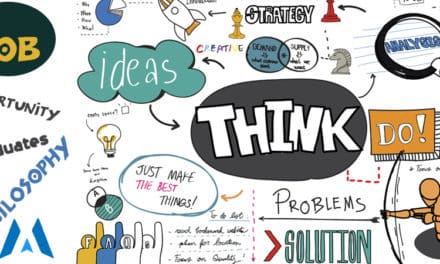International Journal of Philosophy, History & International Relations
Introduction
Global politics, also known as world politics, names both the discipline that studies the political and economic patterns of the world and the field that is being studied. At the centre of that field are the different processes of political globalization in relation to questions of social power. In modern nation states, people often form political parties to represent their ideas. Members of a party often agree to take the same position on many issues and agree to support the same changes to law and the same leaders. An election is usually a competition between different parties.
Historical Development
Analyses of politics appeared in ancient cultures in works by various thinkers, including Confucius (551–479 BCE) in China and Kautilya (flourished 300 BCE) in India. Writings by the historian Ibn Khaldun (1332–1406) in North Africa have greatly influenced the study of politics in the Arabic-speaking world. But the fullest explication of politics has been in the West. Some have identified Plato (428/427–348/347 BCE), whose ideal of a stable republic still yields insights and metaphors, as the first political scientist, though most consider Aristoltle (384–322 BCE), who introduced empirical observation into the study of politics, to be the discipline’s true founder.
Plato and Aristotle focused on perfecting the polis (city- state) a tiny political entity, which for the Greeks meant both society and political system. The conquest of the Mediterranean world and beyond by Aristotle’s pupil Alexander the Great (336–323 BCE) and, after his death, the division of his empire among his generals brought large new political forms, in which society and political system came to be seen as separate entities
Issues and Concerns
Global politics (or world politics) covers all aspects of politics that affect multiple political systems, in practice, meaning any political phenomenon crossing national borders. This can include cities, nation-states, multinational corperations, non governmental organizations, and/or international organization. An important element is international relations: the relations between nation-states may be peaceful when they are conducted through diplomacy, or they may be violent, which is described as war. States that are able to exert strong international influence are referred to as superpowers, whereas less-powerful ones may be called regional or middle powers. The international system of powers is called the world order, which is affected by the balance of power that defines the degree of polarity in the system. Emerging powers are potentially destabilizing to it, especially if they display revanchism or irredentism.
Politics inside the limits of political systems, which in contemporary context correspond to national borders, are referred to as domestic politics. This includes most forms of public policy, such as social policy, economic policy, or law enforcement, which are executed by the state.
Political culture describes how culture impacts politics. Every political system is embedded in a particular political culture. Lucian Pye’s definition is that “Political culture is the set of attitudes, beliefs, and sentiments, which give order and meaning to a political process and which provide the underlying assumptions and rules that govern behavior in the political system”.
Trust is a major factor in political culture, as its level determines the capacity of the state to function. Postmaterialism is the degree to which a political culture is concerned with issues which are not of immediate physical or material concern, such as human rights and environmentalism. Religion has also an impact on political culture.
War is often regarded as destructive – and in many ways it is, not least in terms of violence, lost of life, and material damage. But for many centuries, fighting wars helped governments become stronger, and paradoxically, help ‘build’ states because warfare is often associated with national history and thus national identity. Since the end of the Cold War, ‘new wars’ have broken out in the Balkans, Central Asia, and parts of Africa, where the lines between combatant and civilian are blurred, and the ‘war economy’ is based on illegality.
According to Mary Kaldor – for the first time in centuries, these ‘new wars’ weaken states, not build them. Human Rights form a fundamental part of global politics today. Do states protect human rights because they believe it is the right thing to do, or because other states put pressure on them to comply – either by promising incentives or threatening punishment? Under what circumstances can important norms of international society, such as the non-intervention in the domestic affairs of sovereign states, be violated in the name of protecting people from the gravest violations of human rights? This section answers these questions and more.
Civil Society
How do individual change the world around them? In global politics there are many ways that do not require using public institutions such as governments – these are non-governmental organisations (NGOs) that operate in a public space separate from the state – civil society. The revolution in communication technology has made communication across borders easier and cheaper than ever, it is possible to mobilise public awareness and support for injustices that a few decades ago would have remained unknown. States are being forced to adapt to the impact of networks of civil society groups operating domestically and transnationally.
Development
While globalisation has brought economic opportunities to many, including the platform of growth for the ‘emerging economies’ led by Brazil, South Africa, India and China, it has also furthered inequalities between people, with more wealth concentrated in the hands of fewer people than ever before.
Conclusion
A political system is a framework which defines acceptable political methods within a society. A variety of methods are deployed in politics, which include promoting one’s own political views among people, negotiation with other political subjects, making laws, and exercising force, including warfare against adversaries.
Politics is exercised on a wide range of social levels, from clans and tribes of traditional societies, through modern local governments, companies and institutions up to sovereign states, to the international level. The history of political thought can be traced back to early antiquity, with seminal works such as Plato’s Republic and Aristotle’s politics in the West, and Confucius’ political manuscripts and Chanakya’s Arthashastra in the East.
By: Brendan Amadi & Raphael Okoro
References
Kaldor, M. (2012) New and Old Wars, Cambridge: Policy Press pp.1-31 Chapter Individual 4.1
Krasner, “Brothers under the Skin: Diplomatic History and International Relations,” International Security, Vol. 22, No. 1 (Summer, 1997), pp. 34-43
Freeman, Joanne B., “Founding Bothers” Archived 2007-06-29 at the Wayback Machine
Richard J. Jensen, Historiography of American Political History. In Jack Greene, ed., Encyclopedia of American Political History (New York: Scribner’s, 1984), vol. 1. pp 1-25
Allan G. Bogue, “United States: The ‘new’ political history.” Journal of Contemporary History (1968) 3#1 pp: 5-27. in JSTOR
Allan G. Bogue, “The new political history in the 1970s.” in Michael G. Kammen, ed., The Past Before Us: Contemporary Historical Writing in the United States (1980) pp: 231-251.
Sen, A. (2009) ‘The Idea of Justice’, Harvard University Press, Chapter 1 – pp. 1-27.






Helpful for my studies. thank you
Great insight you’ve got here